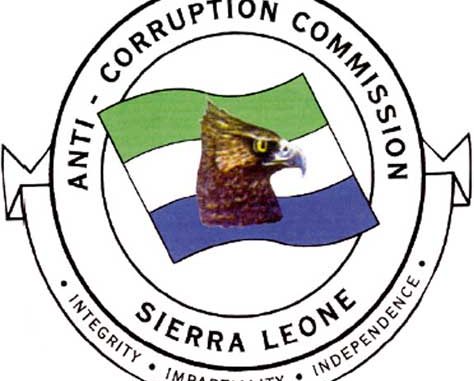Sierra Leone’s Parliament has tabled a new bill seeking to amend the country’s anti-corruption laws.
The Bill entitled: “The Anti-Corruption Amendment Act 2019”, seeks to amend the Anti-Corruption Act of 2008 and give the Anti-Corruption Commission (ACC) more powers to investigate and prosecute corrupt officials.
Specifically, the bill seeks to amend sections dealing with assets declarations, soliciting and obtaining undue advantage and other related matters, according to a statement from the Parliament.
The bill was on Thursday piloted in the House by the Deputy Attorney General and Minister of Justice, Abdulai Bangurah, who was quoted saying that the objects and reasons were to increase penalties, protection of witnesses and to provide the commissioner alternatives to addressing offences related to graft.
The ACC, which drafted the amended bill, said it is also designed to pre-empt corrupt officials thereby preventing corruption.
MPs on Thursday debated the bill before committing it to the Legislative Committee for further scrutiny.
Mr Sidie Mohamed Tunis, ruling SLPP MP and Leader of Government Business in the House, said the amended bill seeks to reduce corruption by 90 percent.
“The essence of the Bill is to make corruption expensive and painful, and on implementation it will reduce corruption by 80-90 percent like in Rwanda,” he said.
Mr Osman Timbo, opposition APC MP, who is also Acting Chairman of the Legislative Committee, praised the move but said it required further deliberations to iron out some of the issues proving contentious for the opposition.
The Legislative Committee is expected to thoroughly scrutinize the bill and then report on its findings to the House with recommendations of whether or not to approve it with or without changes.
Sierra Leone is ranked among the world’s most corrupt countries, according to the annual Transparency International Corruption Perception Index.
Corruption is thought to have contributed to the 1991-2002 civil war.
Therefore, the country started seriously fighting corruption following the end of the war, with the enactment of the Anti-Corruption Commission Act of 2000, under the late former President Ahmad Tejan Kabba.
The 2000 Act superseded the 1960 Prevention of Corruption Act, which was thought to be less effective in fighting graft.
KC/APA


